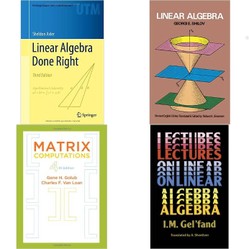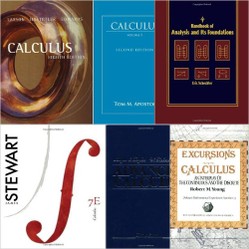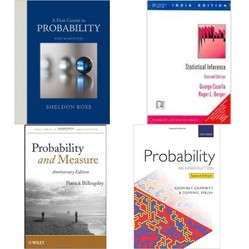Linear algebra is a branch of mathematics that is important and even critical for engineers, computer graphics, statistics, and for more advanced abstract math. It is usually studied after calculus and before other abstract math, but it does not require calculus.
This page provides my recommendations of textbooks for linear algebra.
I will cover books both useful for the undergraduate (college) and graduate levels. The page starts with intro linear algebra book reviews, then moves on to reviews of more advanced linear algebra books, and lastly, covers books on numerical linear algebra.
I especially focus on books suitable for self-study, such as ones that can help supplement a course textbook.















 The Shaming of Femininity and Elevation of Masculinityon 07/13/2017
The Shaming of Femininity and Elevation of Masculinityon 07/13/2017
 What is Genderqueer or Non-Binary Gender?on 10/16/2015
What is Genderqueer or Non-Binary Gender?on 10/16/2015
 Resources for Learning Spanish Free Onlineon 04/13/2016
Resources for Learning Spanish Free Onlineon 04/13/2016
 Ways Native Plants Can Help Control Invasive Plantson 05/26/2016
Ways Native Plants Can Help Control Invasive Plantson 05/26/2016



Questions? Comments? Feedback?